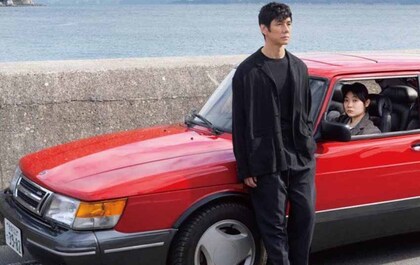 Watching a great modern film in her mother tongue, Etsuko Yasunaga
Watching a great modern film in her mother tongue, Etsuko Yasunaga revels in familiar words - and in silence.
RECENTLY I had an opportunity to sit quietly in the cinema and watch a lengthy Japanese movie. The three-hour masterpiece Drive My Car was the first Japanese film to be nominated for best picture in the 94-year history of the Oscars. It was also nominated for best director, best adapted screenplay, and best international film.
Initially I was a little hesitant. Viewing a daunting three-hour long movie when I’m usually out exercising seemed an extravagant use of time. Was it worth spending my time on a precious Sunday morning?
I quite like viewing foreign films with English subtitles. While listening to a language I don’t understand, subtitles at the bottom of the screen provide the key to following the story. It’s really marvellous that translation works as a vital bridge between the original language and English. I can follow the subtitles naturally and automatically as if English is my first language. I don’t even need to switch back to Japanese to fully understand.
However, when the film started I realised how much easier it was to follow the Japanese language than it was to read the English subtitles. From the beginning Japanese words passed through me effortlessly. Its simplicity and subtlety soaked into my mind straight away. I was absorbed in its familiarity as if I were rediscovering my mother tongue after so many years. If I were to describe this quaint experience, I would use a metaphor of a Japanese hot spring. It was like gliding into hot water and my entire body receiving the warmth and almost melting into a blissful state of relaxation.
My mind no longer needed to work hard to comprehend. Words were spoken and I understood them without thinking. Furthermore the pause between the spoken words of each character held meaning. The silence sometimes spoke louder than voiced words - the empathetic glance and the compassionate embrace between Yusuke and Misaki, the undercurrent of grief of a mother who lost a beloved child and the powerful sign language expressed by the character Lee Yoo-na were filled with emotion.
Suddenly my mind was transported to the concert my husband and I attended in Foster last December. It was organised by Prom Recitals, and Sharon & Slava Grigoryan were performing. I was mesmerised by Spiegel im Spiegel, a profound and meditative piece. Sharon and Slava left enough space between notes. They played in such a way that minds of the audience were filled.
Mozart said “The music is not in the notes, but in the silence between”. Debussy said a similar thing. “Music is the space between the notes.” I’m sure the pauses they talked about are not merely voids between the explicit notes. Ikebana teachers know that empty space carries weight. Negative space is not simply an absence of content. Graphic designers sometimes refer to it as “white space” -a very important part of the content.
The importance of space applies to writing as well. One of the valuable lessons to be learned as a writer is to edit the writing until nothing else can be removed. By removing unnecessary words we create a space for the readers to become engaged and immersed. After all, in Japanese culture we have the world’s shortest form of poetry: haiku. Expressed in 5-7-5 syllables, I believe a haiku can express and contain a whole universe.
Every now and then I had to check to see the quality of English subtitles because I really wanted the non-Japanese audience to appreciate this beautiful film as much as I did. The translations were good and were working well to carry through the essence of this eloquent and uplifting movie. So I sat back and continued to appreciate it in my mother tongue.
Technology has changed the world of entertainment. In the age of entertainment at home, easily accessible on our finger tips, I still think nothing beats the experience of viewing a good film in the cinema.
Drive My Car was truly a sublime film - a poetic, eloquent and meditative tale of human longing, sorrow, loneliness and, finally, acceptance. Its uplifting quality shines through when the tale finally reaches its conclusion. It didn’t win Best Picture in the end but it was the best three hours I have spent, immersing myself in the subtlety of the Japanese language and culture.